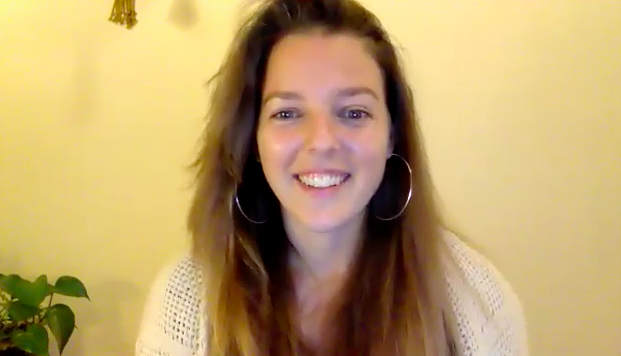Recently, I was given the opportunity to be able to learn more about one of our participants: Dannie Synder. Dannie has been living all over the place since the start of the pandemic, from Austin to Washington D.C. to Mexico City, but has been a dedicated participant of the Free the Vaccine for COVID-19 campaign since Season 1. Read more about her work throughout and beyond the campaign below!
What does the Free the Vaccine for COVID-19 movement mean to you?
I am an artivist: an artistic activist. I consider myself an activist, and I started out in mostly prison abolition. I began as a teacher in juvenile detention centers and through that became interested in the prison abolition movement, particularly because it touches so many different elements from homelessness to mental health to the Black Lives Matter movement — and I’m learning more how it touches access to medicine. This is an area that I have never had much experience and I’m still learning a lot. I’m still gaining confidence in speaking about this movement, and everyday it is shocking to me that access to medicines is an issue. That was one of the reasons I wanted to join this campaign — this is an area that I have been really hesitant to get into as it seems very technical and embedded in the legal system. This campaign is allowing me the opportunity to continue developing my abilities as an artistic activist.
Given that you mentioned your experience working in prison abolition, have you made any connections with the access to medicines movement?
Well, I’m learning more about mental health issues and with the BLM movement and with everything else that is going on right now, we have to ask these questions like “who do we call when there’s an emergency?” We cannot call the police because it leads to violence, so who can we call and what kind of organizations are available in different cities?
This is really addressing the issues of communities with lack of access to not just physical medicine, but also mental health resources. I’m someone who doesn’t have health insurance, and I’m learning how difficult it is to get health insurance in America. I did not realize until during this campaign that one in five people can’t afford their medicine and can’t get access to medicine — I am curious to learn more about prisoners in particular those with mental health issues how many of them actually had access to the essential services that they need.
What are you most looking forward to for this season?
Right now in Season 2, one one of the leaders of our team of our lab is helping come up with really great tactics. One of the things I continue to learn about everyday is we can come up with all these really creative tactics, but what’s actually going to be effective? I really like working with the artistic activism side of this campaign, because we are really good at pushing each other and pushing everyone. I think working also with people from an access to medicines background helps us decide how we are going to get results, since they have experience dealing with the more legal aspects of medicine.
One thing in particular: I have been super excited about the Jolene vaccine challenge. We made the video the trailer to our music video trailer season 1 and probably by the end of November early December we’re going to make the full-length music video. This is all super exciting for me; I felt very important and I felt very happy that we made something which got so much traction on social media. It was a really nice moment we felt like even though we didn’t get Vanderbilt University on the phone yet (who is our target) you know we still can get a response from them from the video. We felt like we did accomplish something by all the people who were exposed to our video, and learned something important and new about the access to medicines movement.
What do you think would be a good outcome for this campaign?
It would be great if we could garner an impressive number of universities to sign onto the Open COVID Pledge. If we could get an institution like [Major State University] to sign the Open COVID Pledge, we know that people like politicians for example are going to pay attention to that. We need to always push universities to do better, and if we can do that, then we have done our part as a campaign!

